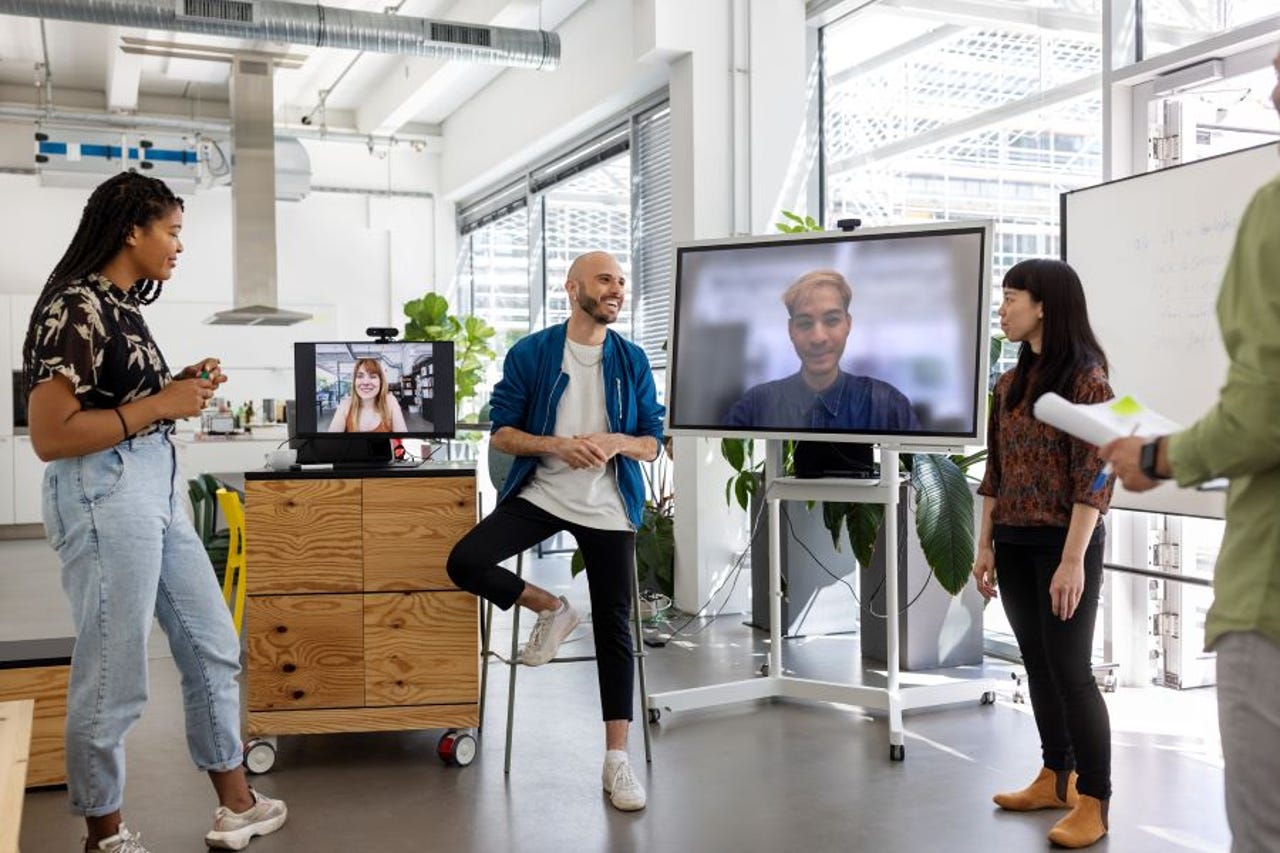































 Image: Luis Alvarez
Image: Luis Alvarez Organizations across the world are rethinking their workforce strategies to accommodate remote-friendly policies at a time when flexibility has become key in the battle for talent.
While the office is far from dead, employers are being forced to consider what role physical workplaces will play as they lean into hybrid-remote work models, and how they can equally support employees who wish to remain remote, as well as those who wish to spend time in the office.
In the office, hybrid or remote, here's what is changing about where, when and how you do your job.
Read nowDevOps platform GitLab has been all-remote since its inception in 2011, and as such has some handy advice to share for companies -and employees -currently faced with navigating the murky waters of hybrid-remote working.
The company has now published its 2022 Remote Playbook, which contains "lessons learned and proven methods for sustaining and scaling a remote workforce" at a time when organizations across the world are rethinking their workforce strategies to accommodate increased flexibility.
Here are five key takeaways to aid a smooth and successful transition to hybrid-remote working.
Employees need clear leadership and guidance when working remotely, particularly if they have been accustomed to working in an office. Likewise, businesses adopting hybrid models effectively now effectively have a two-work environment -which GitLab warns can bring "chaos and dysfunction" if hybrid working is not implemented meaningfully and with intent.
This is exactly why employers should consider hiring a Head of Remote, who can help organizations turn remote working into a strategic advantage, rather than a challenge. "Look for a leader with extensive remote experience and a history of successful business or culture transformations," says GitLab.
"Consider hiring a Chief Documentarian to establish a regimented documentation strategy, and broaden the role over time. Not able to hire someone full-time right now? Start by working with a speciality consulting firm in the meantime."
Companies are spending lots of cash rethinking their workspaces for hybrid-friendly working, but this is of little benefit for those employees who choose to work remotely or are hired as fully-remote workers.
As such, leaders need to ensure that employee workspaces are optimized for productivity and healthy work habits regardless of where they are located -which means providing a budget for team members to select the equipment that matches their working preferences.
Leaders who want to attract and retain a talented, diverse team will need to cultivate a work environment that is inclusive of all needs and preferences," says GitLab.
"Each of your team members will have different equipment needs, space limitations, and location preferences for getting work done. The key is providing them with the autonomy and agency to make these decisions for themselves, being open to feedback, and creating a culture of iteration."
SEE: Hybrid work: From personal experience to global trends
All of the core traits that make a great leader -such as empathy, communication, self-awareness and decision-making -translate directly into a remote setting. That said, managing teams remotely does require certain nuances that managers may need to build on.
To level-up their remote leadership skills, managers should focus on being visible and approachable, promoting inclusion, delegating work, challenging thinking and focusing on results, rather than time spent working or work schedules.
"Monitoring working hours or laptop activity does nothing but break trust and hinder productivity," says GitLab. "Focus on output, not hours spent."
There's no question that allowing employees to work from home or another remote location can promote a better work-life balance. But at the same time, extended periods of working with minimal interaction with other people can also take its toll on employees' wellbeing and lead to burnout, isolation and anxiety.
As such, leaders should encourage workers to experiment with their working patterns and figure out which approach benefits them most. This could mean non-linear workdays with a break in the middle of the day, or allowing employees to work whichever hours they are at their most productive.
They key for leaders is to create a non-judgemental culture, and one that doesn't celebrate working long hours at the cost of mental wellbeing. Managers should be proactive in sensing the signs of mental strain; should not insinuate that work always takes priority; and encourage teams to take PTO.
While taking time to check in with employees becomes even more important when working with distributed teams, leaders should not view meetings as a remedy for a loss of visual oversight.
In fact, GitLabs suggest that the best way to make work more inclusive is to encourage asynchronous working, which enables employees to get work done on a flexible schedule that suits them best. In order to implement asynchronous work, businesses first need to let go of the mentality that all meetings are necessary. By setting a clear agenda for each meeting and recording and documenting the outcomes, workers can decide which meetings are relevant to them and decide whether or not to attend, accordingly.
"Placing this burden on the meeting organizer acts as a filter for whether a meeting is truly necessary. That's a big responsibility, and keeps the quantity of meetings in check," says GitLab. Reducing meetings reduces the need for all employees to be online at the same time, thus facilitating more flexible working patterns.
 Tags chauds:
Maison & bureau
Vie professionnelle
Tags chauds:
Maison & bureau
Vie professionnelle